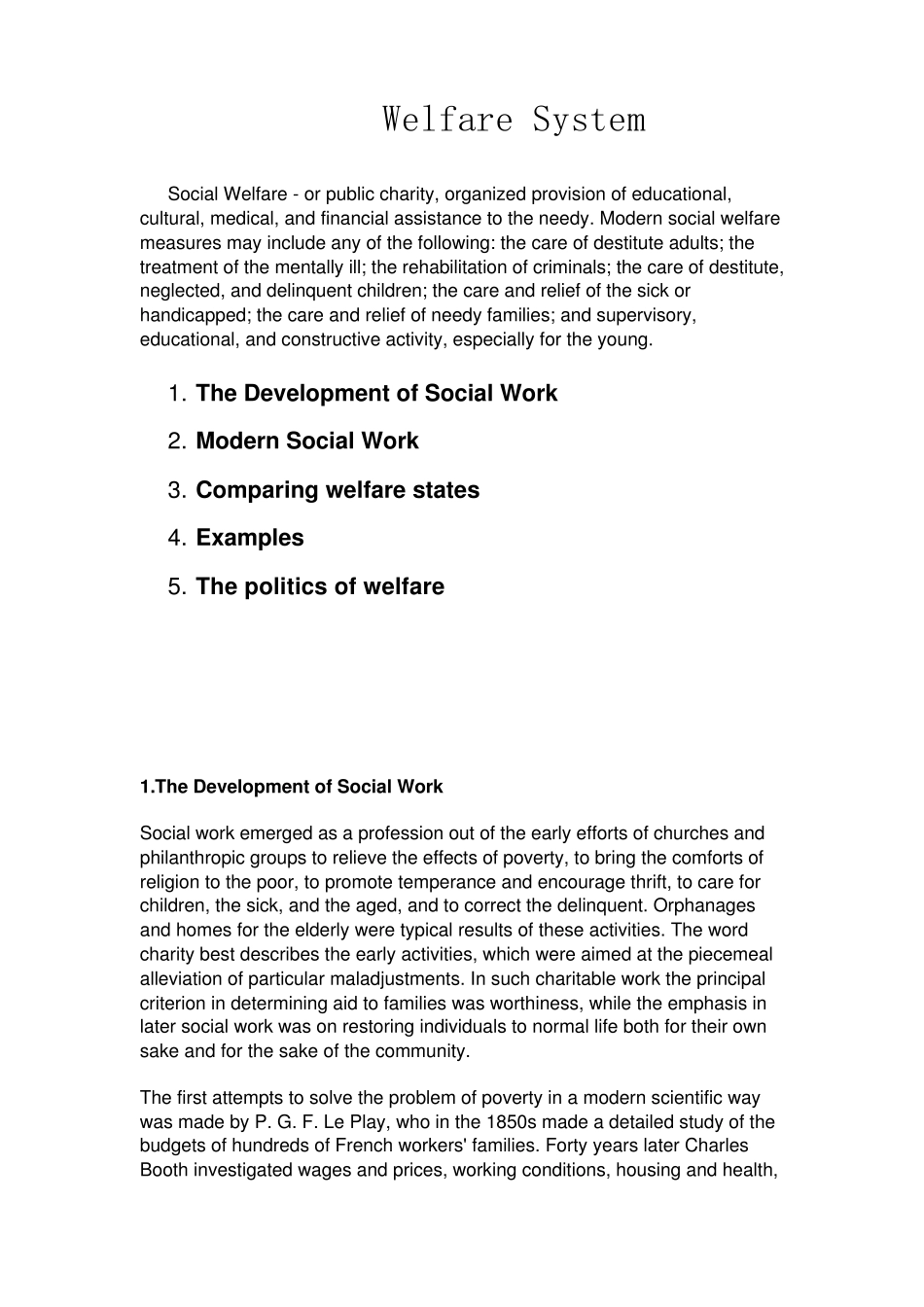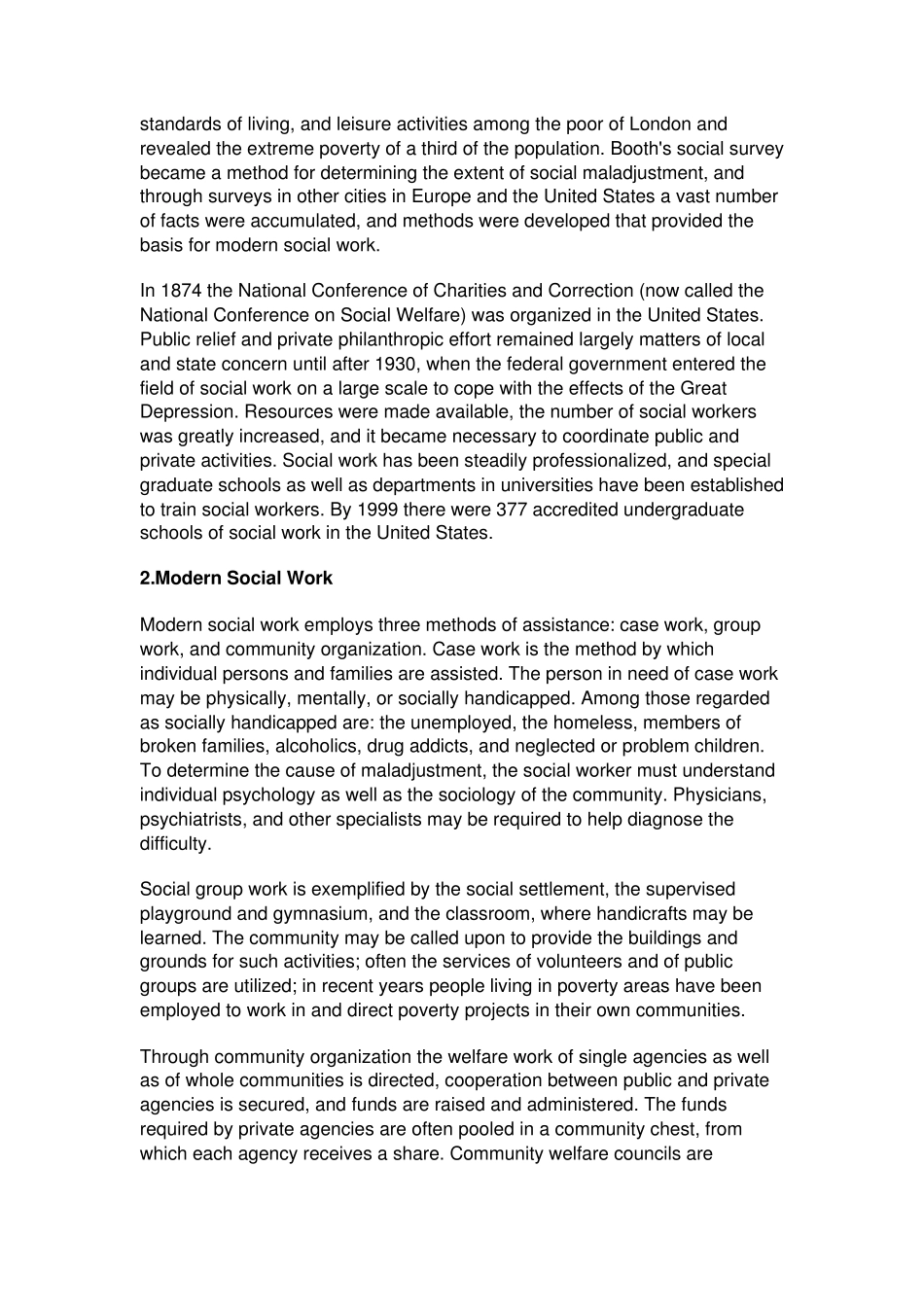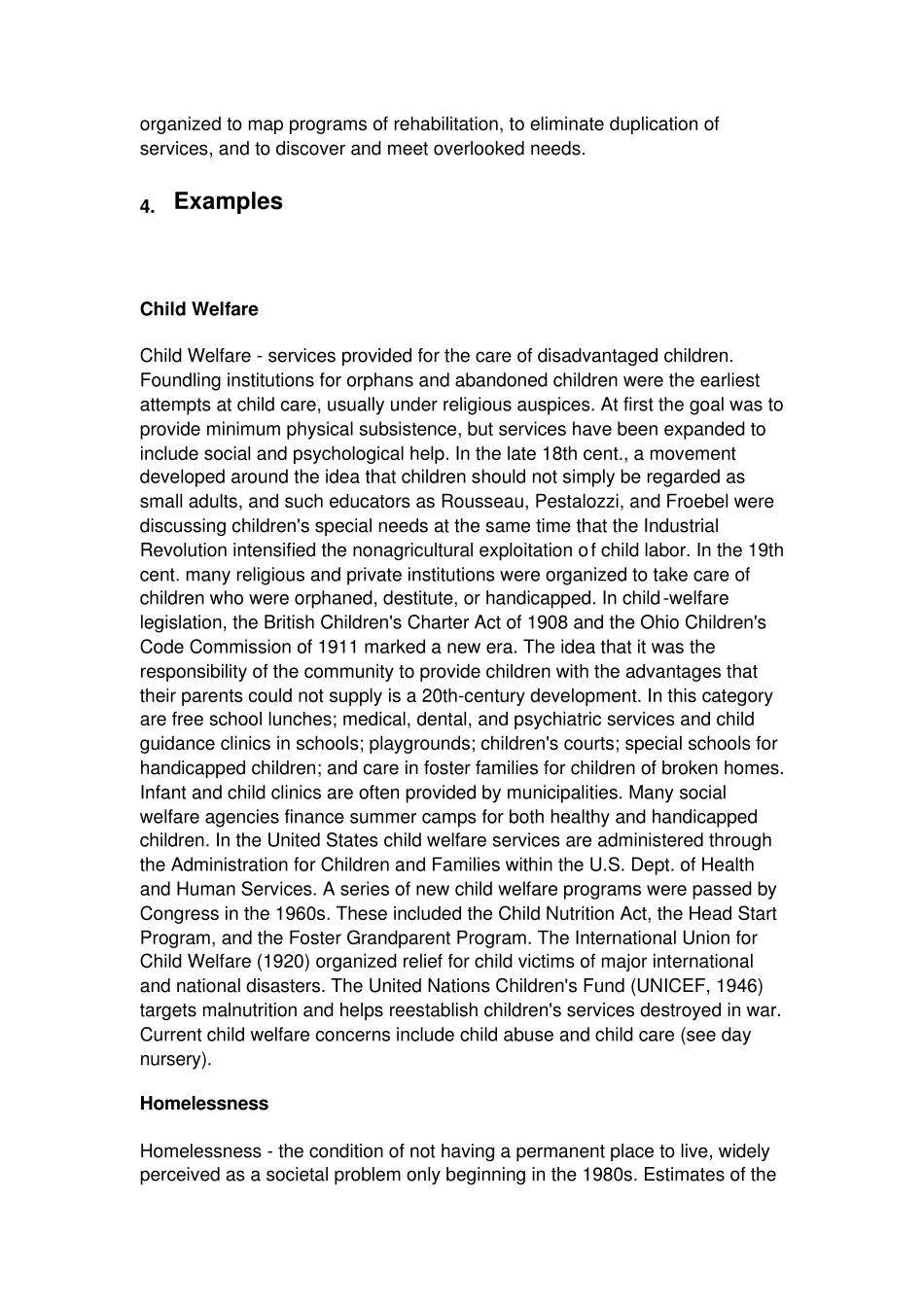Welfare System Social Welfare - or public charity, organized provision of educational, cultural, medical, and financial assistance to the needy. Modern social welfare measures may include any of the following: the care of destitute adults; the treatment of the mentally ill; the rehabilitation of criminals; the care of destitute, neglected, and delinquent children; the care and relief of the sick or handicapped; the care and relief of needy families; and supervisory, educational, and constructive activity, especially for the young. 1. The Development of Social Work 2. Modern Social Work 3. Comparing welfare states 4. Examples 5. The politics of welfare 1.The Development of Social Work Social work emerged as a profession out of the early efforts of churches and philanthropic groups to relieve the effects of poverty, to bring the comforts of religion to the poor, to promote temperance and encourage thrift, to care for children, the sick, and the aged, and to correct the delinquent. Orphanages and homes for the elderly were typical results of these activities. The word charity best describes the early activities, which were aimed at the piecemeal alleviation of particular maladjustments. In such charitable work the principal criterion in determining aid to families was worthiness, while the emphasis in later social work was on restoring individuals to normal life both for their own sake and for the sake of the community. The first attempts to solve the problem of poverty in a modern scientific way was made by P. G. F. Le Play, who in the 1850s made a detailed study of the budgets of hundreds of French workers' families. Forty years later Charles Booth investigated wages and prices, working conditi...


